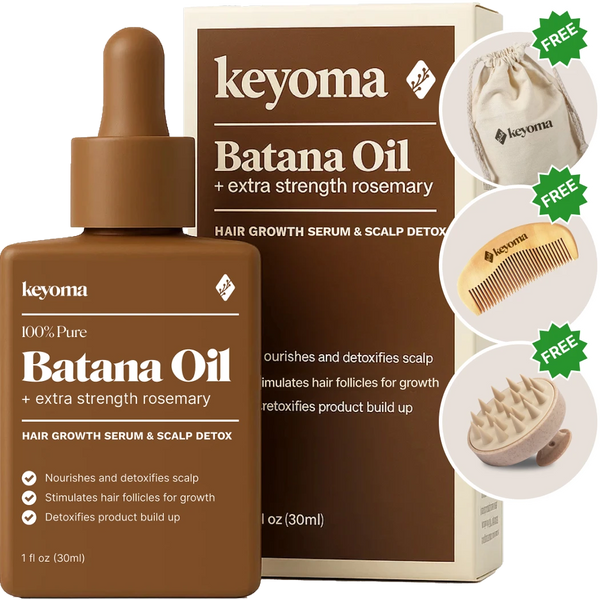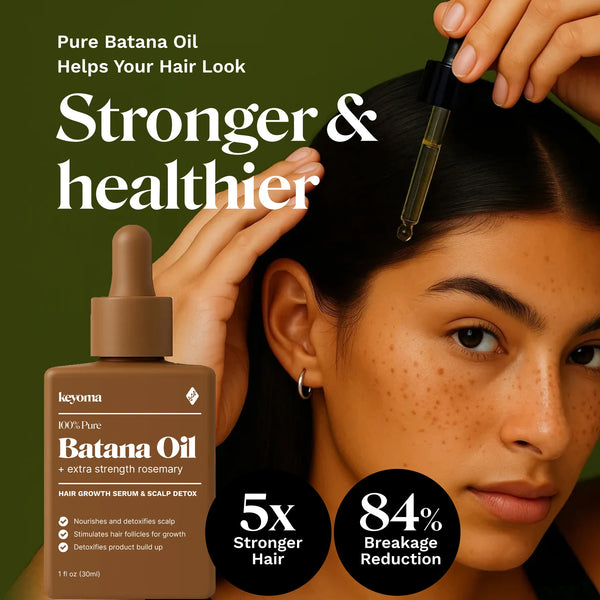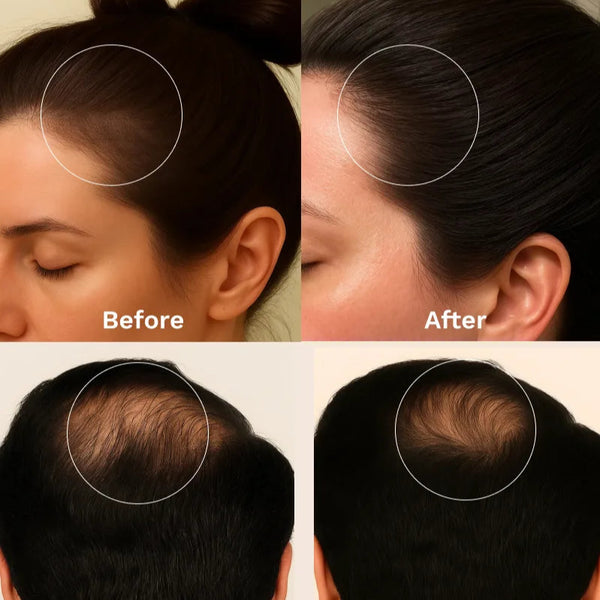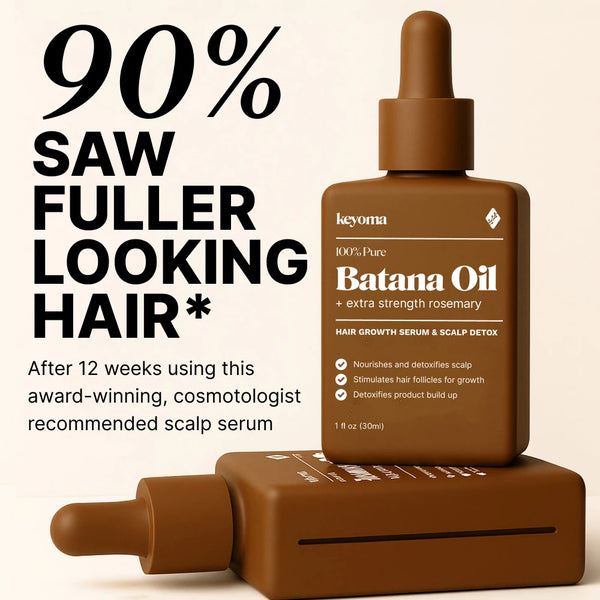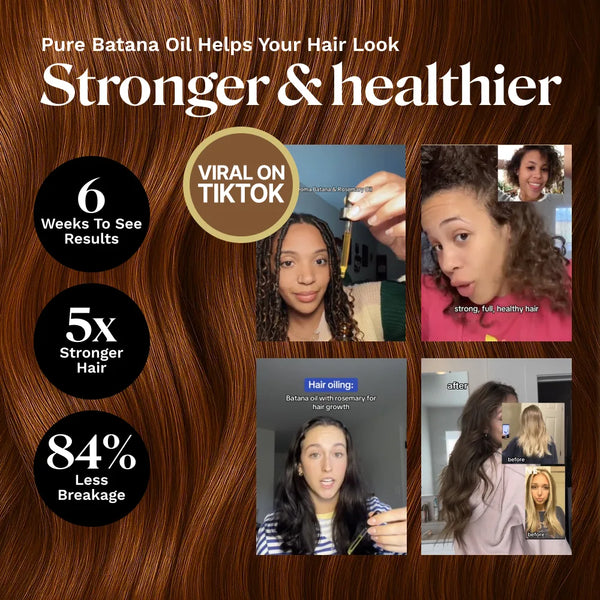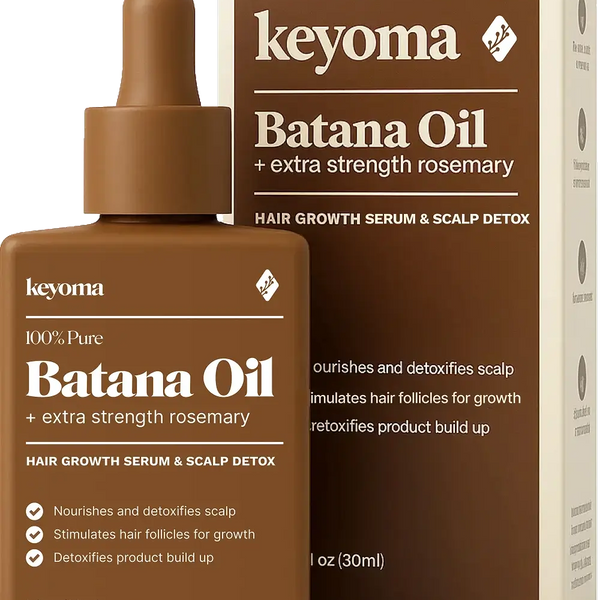In this article
Gray hair appears when your hair follicles lose melanin, the pigment that colors your hair. If you’re graying at a younger age, genetics or an underlying health issue could be the cause.
It’s normal for hair to change as you age. Maybe you once had a full head of brown, black, red, or blonde. With time, you might notice thinning in spots, or your color may shift to gray or white.
Gray strands show up more on darker hair colors. Although grays are common with aging, colorless hairs can appear at any age, even during high school or college.
Your hair turns gray when your body stops making melanin. Melanin is the pigment that gives hair its color.
Pigment sometimes returns, but it depends on the reason for the change. Below are frequent causes of premature graying and ways to try preventing it.
Key Takeaways
-
Gray hair occurs when follicles produce less melanin, often beginning in the thirties.
-
Premature graying links to genetics, stress, smoking, autoimmune disease, thyroid disorders, vitamin B12 deficiency.
-
Reversal remains difficult, though treating underlying conditions may help, and dyes provide coverage.
-
Lifestyle steps may delay graying, including stress management, balanced nutrition, sun protection, avoiding smoking, and checkups.
What Is Gray Hair and Why Does Hair Turn Gray?
For many people, gray hair is the first aging sign they notice, and they want to reverse it.
On average, people start to gray in their 30s to 40s. For some, it begins even earlier.
The medical term for graying hair is canities.
Hair follows a natural cycle of shedding and regrowth. As follicles age, they produce less pigment.
Genetics set the timing, but by about 35 years old many follicles start replacing shed hairs with white or gray strands.
Some people embrace gray as a sign of wisdom, while others feel it ages their look and want a more youthful appearance.
6 Reasons Gray Hair Happens
Hair color fades when follicles make less melanin. That shift is largely set by your biology, yet timing and pace can reflect broader health signals. Knowing the patterns helps you set expectations and decide when to adjust habits or speak with a professional.

1. Genetics
Your genetic makeup largely determines when you develop white hair. If you see grays early, your parents or grandparents likely grayed early too.
You can’t change your genes, but you can color your hair if you don’t like the gray.
2. Stress
Everyone faces stress at times. Chronic stress can lead to:
-
poor sleep
-
anxiousness
-
appetite changes
-
raised blood pressure
Stress can affect hair, too. A 2020 study found stress may trigger premature graying by disrupting the stem cells that renew hair pigment.
That could be one reason some world leaders seem to gray faster while serving in office.
3. Smoking
There’s also a connection between premature white hair and smoking. An early 2013 study reported an association between graying before age 30 and cigarette use.
A more recent 2024 study also found a link between smoking and gray hair.
Smoking cigarettes is known to raise the risk of lung cancer and heart disease. Long-term effects can reach beyond those organs and influence hair.
Smoking narrows blood vessels, which can reduce blood flow to hair follicles and contribute to hair loss. Toxins in smoke can also damage hair follicles and lead to early white hair.
4. Autoimmune Disease
Autoimmune disease can cause premature white hair. In these conditions, the immune system attacks the body’s own cells. With alopecia and vitiligo, the immune response can target hair and reduce pigment.
5. Thyroid Disorder
Hormone shifts from thyroid problems, such as hyperthyroidism or hypothyroidism, may also play a role in premature white hair.
The thyroid is a butterfly-shaped gland at the base of your neck. It helps regulate many body functions, including metabolism.
Thyroid health can influence hair color. An overactive or underactive thyroid may reduce melanin production.
6. Vitamin B-12 Deficiency
White hair at a young age can signal a vitamin B-12 deficiency. This vitamin is important for energy and supports healthy hair growth and color.
Vitamin B-12 deficiency is linked to pernicious anemia, which happens when your body can’t absorb enough of the vitamin.
Your body needs vitamin B-12 to make healthy red blood cells that carry oxygen to tissues, including hair cells. Low levels can weaken hair cells and interfere with melanin.
Can I Stop My Hair From Turning Gray?
Premature graying is hard to treat. There aren’t proven medical treatments to restore color. If an underlying issue like a vitamin deficiency is contributing, your dermatologist or primary care doctor can help make a plan.
Gray hair is a normal part of aging, and there’s nothing wrong with it. If it affects your confidence, you can cover it with hair dye.
There are different types of hair dye:
-
Natural colors such as henna. They’re usually gentler than synthetic dyes, though they tend to fade faster and need more touch-ups.
-
Synthetic dyes. Permanent or semi-permanent options last longest and may be easier to use than temporary dyes. Some ingredients in longer-lasting formulas can irritate the scalp or trigger skin allergies.
When picking a dye, think about your skin sensitivity and the product’s ingredients.
Some suggest plucking gray hairs, but pulling can thin hair, and the regrowth will still be gray.
Some research hints that gray hair can regain color in certain situations. Findings depended on factors like lowering emotional stress or treating an underlying condition. More studies are needed to know if grays can be reversed.
How to Delay Gray Hair From Spreading?
Researchers are still exploring ways to reverse grays, but lifestyle choices may slow how quickly your hair turns silver. As with hair loss, starting earlier can help your results. These steps are temporary and won’t fully stop graying.
Dermatologists suggest these habits to help delay graying:
-
Keep a healthy routine
-
Eat a balanced diet rich in antioxidants, vitamins, and minerals
-
Get enough sleep
-
Avoid smoking
-
Practice stress management
-
Shield your skin and hair from the sun’s harmful UV rays by following the tips
Home Remedies for Gray Hair: What May Help
There is no quick way to turn gray hair back, but steady, low-risk habits can support scalp comfort and may slow how fast color fades. Focus on simple steps that reduce oxidative stress, protect hair, and meet nutrient needs so you can stay consistent long enough to see what helps.

Get Enough Vitamins
Healthy habits and a balanced diet with enough protein, plus correcting nutrient gaps, may help prevent graying.
Current evidence suggests several deficiencies can contribute to graying hair. Vitamin D is one example. One study in The International Journal of Trichology found children with premature graying had low vitamin D.
In another study in the same journal, researchers observed an association between vitamin B12 deficiency and graying. This was preliminary and needs more research to confirm.
Taking vitamins and eating antioxidant-rich foods can reduce oxidative stress and supply the building blocks for healthy hair.
Manage Stress
Current evidence suggests stress can speed graying by raising oxidative damage. That damage may impair pigment cells and lower melanin output. I noticed brief walks outside eased tension and improved my sleep quality. Some studies observed pigment stem cells under stress fail to replenish normally. Managing stress could help slow the process.
Try Rosemary Oil
So, how might rosemary help with graying? Here’s a quick breakdown.
Your scalp contains pigment cells called melanocytes. They maintain your natural hair color. With time, stress, or nutrient gaps, these cells slow down or die.
Now, studies show rosemary has antioxidants, especially carnosic acid. Researchers observed it helps repair damaged nerves and may stimulate pigment-producing cells.
Blending rosemary with other supportive oils like castor or lavender can improve scalp health, clear buildup, and let follicles function. All of this supports thicker, stronger hair.
So, can rosemary darken hair? Used consistently and early, it might help your natural color last longer.
Quit Smoking
This one matters for hair and overall health. There’s extensive research showing smoking correlates with premature graying across age groups. Like stress, smoking can cause oxidative damage
With hair that is already gray, cigarette smoke can leave a yellow or dull cast that keeps hair from looking bright, manageable, and shiny.
Protect Hair From Sun Exposure
Excessive sun exposure can damage skin and may accelerate or trigger graying. Reducing oxidative stress by protecting your scalp from the sun is smart. Use scalp sunscreen or wear protective hats.
Schedule Annual Checkups
Autoimmune, metabolic, and thyroid disorders can cause premature gray hair, so regular checkups matter. If you have hair or skin concerns, talk with a healthcare professional. Board-certified dermatologists can offer guidance and check for underlying issues.
Limit Exposure to Toxins and Pollutants
We all try to get fresh air and avoid pollution, but it’s worth repeating. One study found a link between free radical exposure and gray hair. If you want to keep your color longer, reduce oxidative stress, keep your space clean, and breathe fresh air daily.
Start Early Gray Hair Care With Keyoma Guides
Now that you know why gray hair happens, when it often starts, and which habits may slow it, act on the basics. For a gentle daily step that fits any routine, finish with Keyoma’s Batana Oil with Rosemary. Use a few drops on the scalp and lengths to seal light moisture, add slip during massage, and keep the scalp comfortable alongside your plan.
Featured Product
100% Pure Batana Oil + Rosemary
↓Best Batana Oil to Buy↓
1 Month
Subscribe & Save
- 30-day supply delivered monthly $35
- 30% off for life $6
- Free haircare essentials kit $33
- Free custom wooden comb $10
- Free scalp massager $15
- Free eco-friendly travel bag $8
- 30-Day Money Back Guarantee
- Free Shipping
- Online portal for easy cancel, skip, or pause.
1 Month One Time Purchase
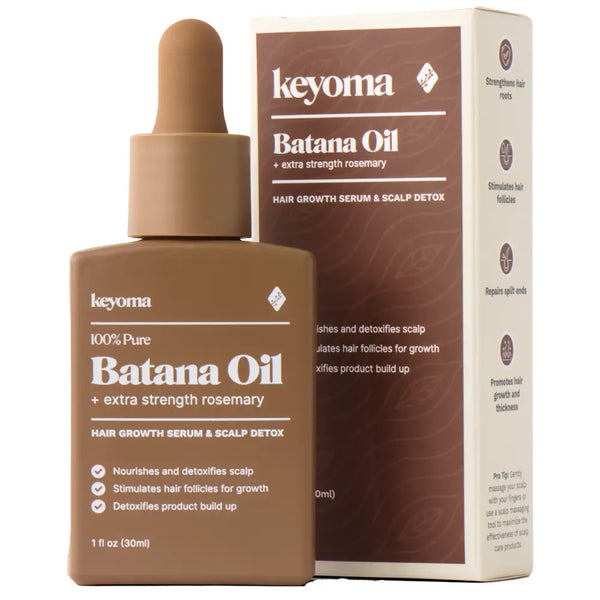
- 30-day supply $50
- 30% off for life $6
- Free haircare essentials kit $33
- Free custom wooden comb $10
- Free scalp massager $15
- Free eco-friendly travel bag $8



